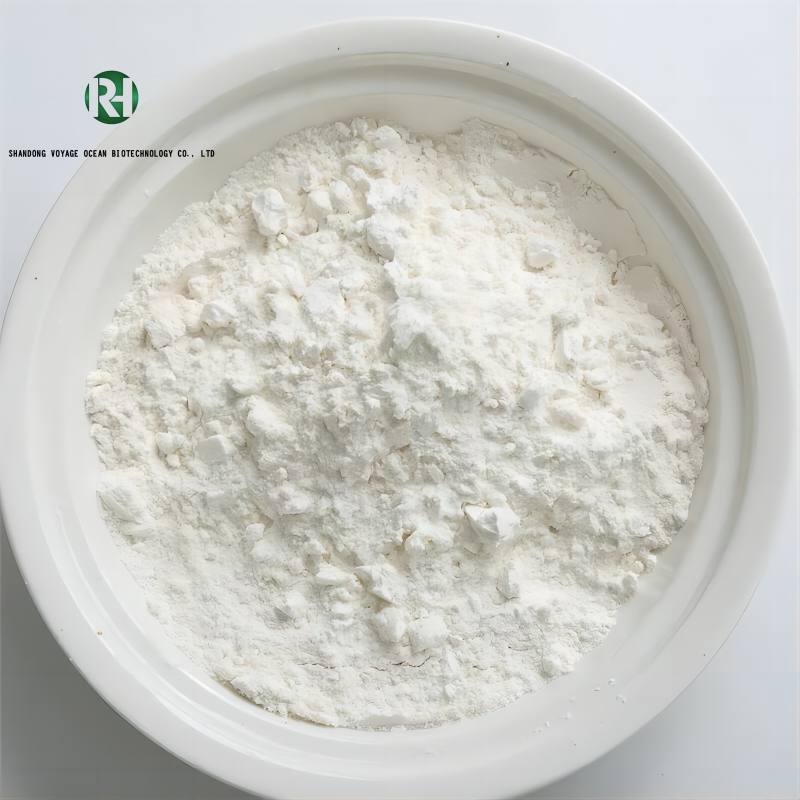Devel Cell: Persistent DNA damage in the placenta or affects the body's pregnancy outcome
-
Last Update: 2020-06-21
-
Source: Internet
-
Author: User
Search more information of high quality chemicals, good prices and reliable suppliers, visit
www.echemi.com
, June 18, 2020 /
BioON/ --A recent study published in the international journalDevelopmental Cell, scientists from the Stois Medical Institute in Missouri, USA, and others found that the cornelia de Lange Syndrome, CdLS mouse model early in development, placental dysfunction may play a new role that researchers didn't know before, and people with this rare disease typically carry mutations in the body's cohesionns, a ring protein that helps with DNA assembly and self-repairPhoto Credit: Mark MMiller, Stowers Institute for Medical Research
The researchers found that the placenta of mice carrying mutant mucoproteins accumulates large amounts of DNA damage, which enters a permanent growth staticycle phase known as aging, while also secreting a large number of inflammatory cytokines that affect embryonic growth;targeting cytokine signals or helping to protect the body's placenta health and promote healthy pregnancies'We found that DNA damage in the placenta in mice activates cell aging, which may have some meaning, perhaps through a smoking-like mechanism that induces DNA damage and limited fetal growth in the placenta,' said researcher Jennifer LGertonit is estimated that one in 20 newborns will be affected by intrauterine growth restrictions, i.einfants in the womb do not grow at the expected normal rate, so smaller than expected, the most typical example of this growth and development restriction is Dranghe syndrome, a very rare disease that affects one in every 10,000 newborns, and individuals with this syndrome are born with small size, intellectual disability, arms and bone abnormalitiesDelange syndrome is triggered by a genetic mutation that affects the function of the muad protein, which wraps around DNA and folds it into rings, and scientists have long believed that when defects in the bonded protein complex make DNA assembly confusing, it interferes with the opening and closing of gene expression during the body's development, which can trigger Delange syndrome, but researchers suspect that this may be just part of the whole storyPrevious studies have shown that pregnant women with Delange syndrome have low levels of a protein called pregnancy-related plasma protein A (P
app
-A), which is secreted by the placenta, but this study found that this vital but yet fully studied organ (the placenta) may also be worthy of late-stage research by scientistsresearchers wanted to analyze what would happen to the placenta in the body of the dronger syndrome mouse model, and based on the results of this study, the researchers found that the genome of the body's placenta in the mouse model was subject to persistent damage, highlighting the role of the adhesive protein in repairing DNA damage that was important but not fully studied, which might cause the placenta to enter a state of premature aging and thus promote cell divisionAs the placenta enters an aging state, it begins to secrete a cytokine that initiates an inflammatory reaction, such as flares that emit a warning signal, which accumulate in mouse embryos and affect their growth and healththe old saying that any kind of pressure during pregnancy affects fetal growth, in this study, researchers used mouse models to study how DNA damage affects embryo growth through cytokine signals at the molecular level, in order to further clarify the key role of the placenta in the development of Delange syndrome The researchers tested whether normal mouse placentas reduced the risk of embryo growth defects in mouse models of Delange syndrome, and it is worth noting that the model embryos of Delange syndrome, supported by normal mouse embryos, grow better and healthier than those that are nourished by the affected placentathe next step researchers plan to test whether small molecule drugs that block placenta-promoting cytokines can lead to better health outcomes in the mouse model of Delange syndrome, and the researchers believe that such anti-inflammatory drugs may be used in the future to improve pregnancy outcomes in individuals, but later researchers will need to do a lot of research to clarify(BioValleyBioon.com)original origins:Vijay Pratap Singh, Sean McKinney, Jennifer LGerton.
Persistent DNA Damage and Senescence in the Placenta ImpactS Development s outcomes of the
,DevelopmentAl Cell, 16 June 2020, doi: 10.1016/j.devcel.2020.05.025
This article is an English version of an article which is originally in the Chinese language on echemi.com and is provided for information purposes only.
This website makes no representation or warranty of any kind, either expressed or implied, as to the accuracy, completeness ownership or reliability of
the article or any translations thereof. If you have any concerns or complaints relating to the article, please send an email, providing a detailed
description of the concern or complaint, to
service@echemi.com. A staff member will contact you within 5 working days. Once verified, infringing content
will be removed immediately.







